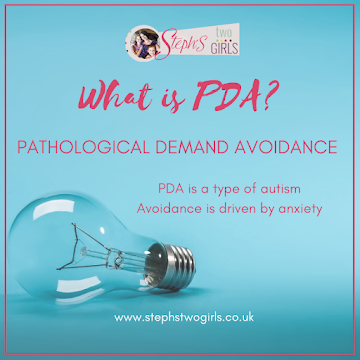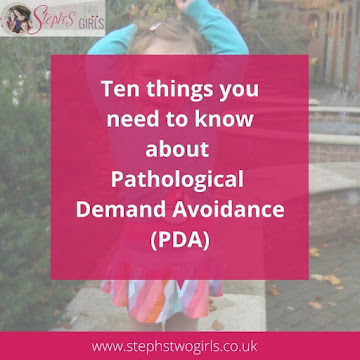Do you prefer to be on your
own?
I can't believe that anyone born as a human being really wants to be left all on their own. What we're anxious about is that we're causing trouble for the rest of you, or even getting on your nerves. This is why it's hard for us to stay around other people.
I can't believe that anyone born as a human being really wants to be left all on their own. What we're anxious about is that we're causing trouble for the rest of you, or even getting on your nerves. This is why it's hard for us to stay around other people.
The truth
is, we'd love to be with other people. But because things never, ever go right,
we end up getting used to being alone. Whenever I overhear someone remark how
much I prefer being on my own, it makes me feel desperately lonely. It's as if
they're deliberately giving me the cold shoulder.
This is an excerpt from the book 'The Reason I Jump', which was written by a 13 year old Japanese boy diagnosed with autism who has speech difficulty. He had help 'typing' this book; he pointed to letters on a cardboard alphabet grid to determine the words. He was asked questions about what it was like for him to have autism. I've not read the book myself yet, though it is now on order, but I came across these words in a brilliant article in the Guardian entitled David Mitchell: Learning to live with My Son's Autism.
This question and answer stood out for me in particular because I can see this so clearly as being relevant for our youngest girl. Today she said 'I like company. You know, just the being with someone. Not the talking kind.'
She often tells us she wants company, and yet her actions often shun the company she requests; she can seem almost anti-social when screaming 'go away!' and 'leave me alone' at those less used to being around her.
It is common for people to want to care, and to help others. As a society, I think we are programmed to show we care by either deciding for others what we can do for them, or by asking what others want, verbally or otherwise. That sounds nice, and reasonable, doesn't it? For many people it doesn't seem to come easily to wait, and let the other person express what they want or what will help most in their own good time. Particularly if the other person struggles with communication in any way. It's a natural instinct for many I think, to keep talking, offering different solutions, or just trying to 'chat' to offer comfort.
 For those like our girl though, who need time to process verbal instructions, more talking is definitely not a good thing. I wince and feel bad of course when I hear her being rude to others, and screaming at them to go away, but I do at least understand why she is doing it.
For those like our girl though, who need time to process verbal instructions, more talking is definitely not a good thing. I wince and feel bad of course when I hear her being rude to others, and screaming at them to go away, but I do at least understand why she is doing it. The truth is that our youngest faces a lot of sensory issues which are not immediately obvious to others. It's taken me years to make sense of some of them, whilst others (such as difficulties with certain clothing - her refusal to wear socks, her preference for soft, jersey, non-fitted dresses and short sleeves) were obvious when they started at a young age.
Recently I collected her from school and asked her a simple question along the lines of 'have you had a good day?'. Her response was a slightly agitated and rushed 'errrr, don't worry about it'. When I glanced at her, I immediately realised why - she was actually trying to listen to the music in the car, and the words of the song. So my questioning was interrupting her train of thought and she was trying to ask me politely to be quiet.
From a very young age she has dictated what sounds we have in the car - it is generally the same number song from a particular CD played over and over, so that she can familiarise herself with it. Often it's just at the point when all the other car occupants are at breaking point and have gone from loving to hating that particular song, that she will manage to choose a new one to become fixated on. If we try and play music that she doesn't like, or the radio with general talking, we can see it's almost painful to her. We've been extremely lucky that she did take a liking to One Direction and other current pop music, as this has meant our eldest is happy too!
I think we are programmed to 'make conversation' and chat from a very early age, and obviously this is necessary to develop language skills, which is where the rub comes in for us particularly. Constant talking to our youngest is like those nails scraping down a blackboard for her, and at some point you have to question how much it is teaching her if she is desperately trying to switch off anyway. So these days, on a car journey for example, I let her have her choice of music - if it's been an overloaded kind of day, or we are on a long journey, then she often chooses no music to avoid it making her feel more poorly. I don't chatter and make polite conversation, I don't point out interesting sights along the way, I don't ask how her day has been - all things that I most definitely would do if it was just our eldest in the car.
Going to the pantomime is not something we could do when she was younger (we tried; she spent a lot of time in the entrance hall) but we've worked on it so it has now become a great family tradition. It would have been easier to just not go, but we felt it was something we'd like to do as a family, for our eldest girl's benefit too. The enjoyment is clear to see, with huge laughs for us all together, but we are always very aware of how difficult the noise levels, and the shouting out and audience participation are for our youngest. Sometimes we use noise cancelling headphones to help her cope, sometimes she is on top form and can just manage it herself, other times we know we will need to leave during the performance so she can take a break from it. It's not easy or straightforward.
She once came out of school and told me that she felt like saying 'blah-blah-blah' back to the teacher when she talked. She explained it was because that was what all the noise in class constantly sounded like to her as it entered her ears. She often tells me that the children in class are too chatty (though the irony that she can make the most noise is definitely lost on her, in typical PDA fashion) and that everything was too noisy. From a young age she would put hands on ears to block out the noise, but as she's got older she often uses a coping mechanism of trying to 'switch off' rather than do the hands action. Fingers in ears does still happen though, and some days are worse than others.
I think she is being literally bombarded by different sensory experiences every day, whether that's noise, or smell, or visually. She just has a totally different threshold for these to many of us, and I can't imagine how difficult that makes life for her. Hopefully we're not too far away from her being able to express the difficulties for herself, as that may lead to greater understanding all around.
In the meantime, of course I don't 'let her get away' with being rude or screaming at people. It may seem like that sometimes, but I've learned, after seven years of managing this behaviour, that there is no point 'telling her off' at the time it happens. Exactly at that time is when she needs the least amount of verbal input; she needs quiet and time to process. I do always go back to her at a later time or date to explain why her actions are not acceptable, and we talk it through together. I realise that because original onlookers are not always around to see that discussion, they may get the idea that I'm not being strict enough, or not teaching consequences.
My girl learns differently to a typically developing child; it is not her fault or mine. We manage this as best as we can together, with years of practice behind us now. The discussions may not always prevent her from getting upset again, but we have seen improvements in behaviour. It just doesn't happen as instantly as it would for our eldest girl.
For more information about PDA, please read any of the books in my post
Books about the Pathological Demand Avoidance (PDA) profile of autism
To find out more about our experiences, please check out our 'About Us' page or the summary of our experience in Our PDA Story Week 35. If you are looking for more online reading about Pathological Demand Avoidance, the posts below may help.
What is PDA (Pathological Demand Avoidance)?
Ten things you need to know about Pathological Demand Avoidance
Does my child have Pathological Demand Avoidance?
The difference between PDA and ODD
Strategies for PDA (Pathological Demand Avoidance)
Pathological Demand Avoidance: Strategies for Schools
Challenging Behaviour and PDA
Is Pathological Demand Avoidance real?
Autism with demand avoidance or Pathological Demand Avoidance?
To follow me on other social media channels, you can find me at the following links or click the icons below!
Facebook: www.facebook.com/stephstwogirls
Twitter: twitter.com/stephstwogirls
YouTube: www.youtube.com/c/stephcurtis
Instagram: www.instagram.com/stephstwogirls/




















